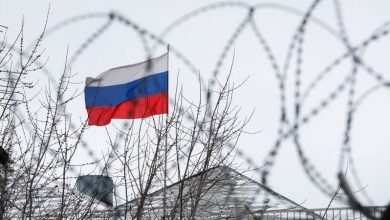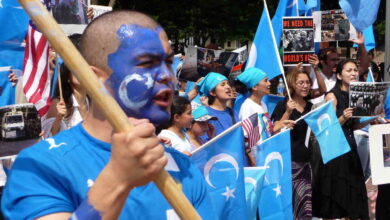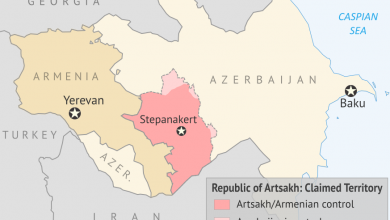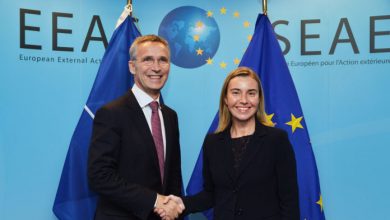How the Mayor of Prague Became Taiwan’s Best Friend
A seemingly trivial story epitomises the decision Europe is called to take: stand to China or passively accept its power?

The independence of the World Health Organization (WHO) has been recently put into question when an official from the UN body eluded questions over the status of Taiwan in the WHO during an online video interview. The Canadian Assistant Director-General of the WHO Bruce Aylward first faked a network lag and then, after being asked the question one more time, hung up on the journalist. When the anchor called back to continue the interview and have her question answered, Aylward said: “We already talked about China”. The UN official then ended the interview.
Aylward appeared to tacitly embrace the “One China Principle“, the tenet of the Communist Party of China (CPC) asserting that the People’s Republic of China (PRC) represents the only legitimate Chinese state. In 1949 a ferocious civil war changed China for ever: the Chinese Nationalist Party (Kuomintang) heading the Republic of China (ROC) was defeated by the CPC; its leaders and members were forced to flee the mainland and repair on the Isle of Formosa, commonly known as Taiwan. Here, they relocated the ROC government. Since then, the CPC has refused to recognize Taiwan as an independent country and Xi Jinping has repeatedly stated that Communist China will eventually take control of the island.
This stance had also ramifications on Taiwanese membership of international forums. Indeed, when in the Seventies the United States started to consider Communist China an interlocutor and an opportunity to gain an advantage over the Soviet Union, Taiwan lost its UN membership to the PRC and consequently its participation to UN bodies like the WHO.
Amid the current SARS-CoV-2 pandemic, however, Taiwanese authorities have proved extremely capable of containing the spread of the virus, with the country being internationally praised for its timely and effective response. Despite the emergency situation, Taiwan remains left out of the WHO. China keeps opposing to any official recognition of the Taiwanese government, but the small island could have a lot to offer in terms of experience in dealing with the virus.

Extending the Arm of Friendship
In Europe, one person recently emerged as a strong supporter of an independent Taiwan: the Mayor of Prague Zdeněk Hřib. Doctor by profession and politician from the Czech Pirate Party by vocation, last October Hřib severed ties with Beijing by cancelling a sister agreement between the two cities. Two months later he announced that Prague would sign a new deal with Taiwan’s capital Taipei. On January 2020, Taipei replaced Beijing as Prague’s sister city, an event that saw the mayor Ko Wen-Je visit the Czech capital to sign the agreement. The text established cooperation in areas such as education, culture and tourism.
Hřib opposed the “One China Policy” clause contained in the previous agreement with Beijing, according to which Prague was forced to recognize the PRC as the legitimate Chinese state. Following the new agreement with Taipei, the Chinese city of Shangai, also twinned with Prague, protested furiously and cut ties with the Czech city, as its mayor “had interfered in China’s internal affairs, and openly challenged the One China principle”.
Aside from the refusal by China to host the tour of the Prague Philarmonic Orchestra, it is probably too early to say if this move came with considerable costs in terms of trade with China. However, the benefits are already apparent. In early March, Taiwan sent to Prague important information regarding the country’s response to the epidemic, including big data analytics, the actions taken by date by Taiwanese authorities and hygiene education materials. Hřib provided to share the information with the national authorities.

Prague Leads, Czechia Follows
The mayor of Prague is not alone in his effort to forge a stronger relationship with Taiwan. Last January a planned visit to Taiwan by a high-level Czech politician prompted a quick response from China, which warned the European country of severe repercussions on its exports to China if the country had gone forward with its plan. While the visit did not take place, it is evident that many in Czechia oppose the country’s pro-China path inaugurated by the President of the Republic Miloš Zeman. Together with several European countries, the Czech Republic signed a Memorandum of Understanding on the Chinese One Belt One Road Initiative and Zeman himself declared his intention to turn his country into “China’s gateway to Europe”.
The Czech dissident Vaclav Havel always highlighted the importance of morality in international relations and, drawing up from his confrontations with the Soviet Union, supported Tibet in its fight against Chinese imperialism. As Havel’s political heirs, Hřib and the Pirate Party are concerned that with China becoming more assertive, human rights will just become a buzz word.
Taiwan represents a drop of democracy in an ocean of authoritarianism. If the EU wants to reinforce its position as a normative power, it should take a clear stand and challenge the One China Policy when this prevents fruitful cooperation with Taiwan and threatens international public health and the very existence of a democratic country.





